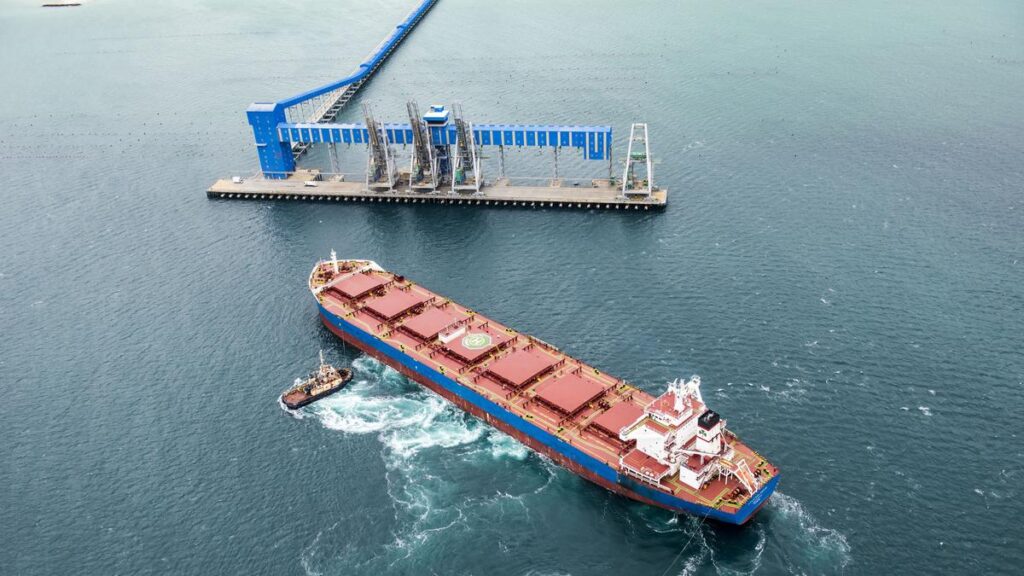
A grain ship prepares to berth at CBH's Kwinana Grain Terminal.
Farmers in Western Australia are bracing for potential financial impacts stemming from ongoing disruptions at the Kwinana Grain Terminal. An indefinite lockout has been declared following a breakdown in enterprise bargaining negotiations, raising concerns about the long-term effects on the agricultural sector.
The Kwinana Grain Terminal, the largest of its kind in the state, has become the focal point of labor disputes, affecting operations critical to local farmers. According to the Grain Industry Association of Western Australia, the failure to reach an agreement will likely shift the financial burden onto growers. This situation has prompted calls for a swift resolution to avoid exacerbating the challenges faced by the agricultural community.
The lockout, which began in early October 2023, involves workers being barred from entering the terminal as negotiations stall. Stakeholders emphasize that the prolonged standoff could lead to increased costs for farmers, who already navigate a complex market. With the harvest season approaching, the urgency for a resolution intensifies, as delays could disrupt grain handling and transportation vital for the industry.
John Smith, a representative from the Grain Industry Association, highlighted the potential repercussions. “If this situation continues, it’s the farmers who will ultimately pay the price through higher fees and disruptions to their operations,” he stated. As the largest grain terminal in the region, Kwinana serves as a key hub for grain exports and processing.
The impact of this dispute extends beyond immediate operational challenges. Farmers are concerned about their competitiveness in the market and the potential for increased prices for consumers. The ongoing negotiations reflect broader issues within the agricultural sector, where labor relations and operational efficiency play critical roles in sustainability.
As the lockout continues, both sides have expressed a willingness to negotiate, but the path forward remains uncertain. The Kwinana Grain Terminal is crucial not only for local farmers but also for the broader economic landscape of Western Australia, which relies heavily on agricultural exports.
The situation underscores the importance of effective communication and negotiation within the industry. Farmers and industry leaders alike are calling for a resolution that prioritizes the sustainability of the farming community. With the stakes high, all eyes are on the negotiations to see if an agreement can be reached before the harvest season is compromised.
In conclusion, the ongoing lockout at the Kwinana Grain Terminal is a critical issue for Western Australian farmers. The financial implications of this disruption highlight the need for swift action to restore operations and ensure the viability of the local agricultural sector.







